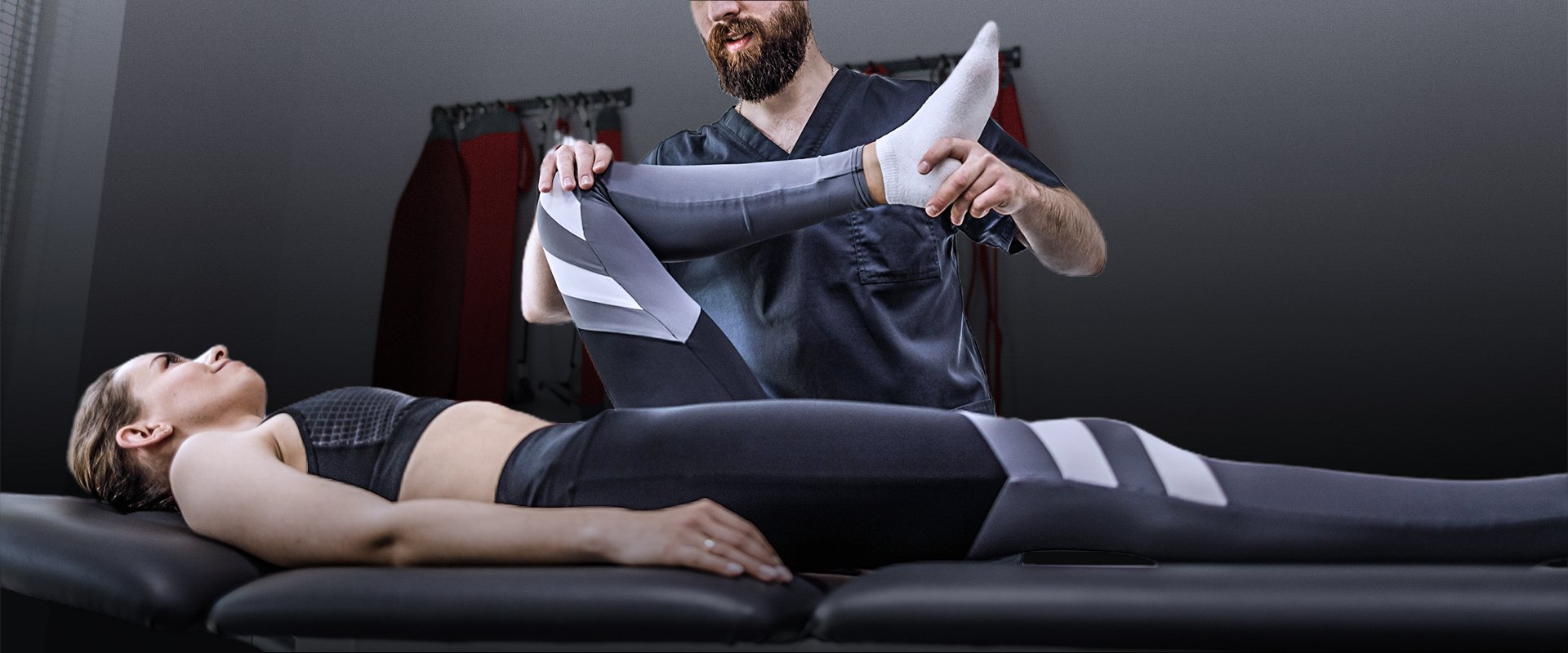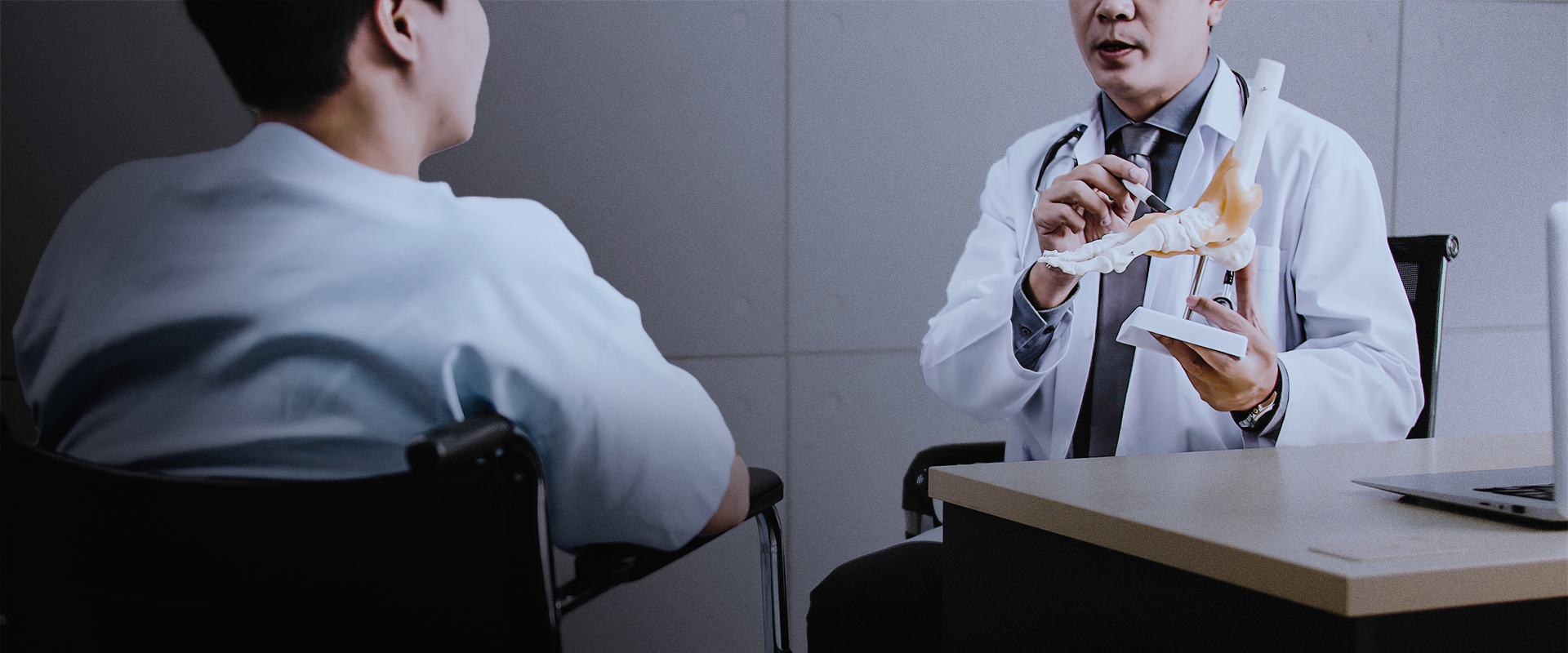
Physical Therapy for foot Tendonitis
AT EVOLVE
Physical Therapy for foot Tendonitis
HOW CAN PHYSICAL THERAPY ADDRESS FOOT TENDONITIS?
Tendonitis in the foot is a musculoskeletal condition that can cause pain, discomfort or weakness in one or more of the foot's tendons. Foot tendonitis can sometimes mimic other conditions of the foot like a sprain. Tendonitis can benefit from a different approach to care depending on how acute the injury is. Recent cases of tendonitis may benefit from some rest initially while more chronic cases often benefit from structured exercise and therapy. Physical therapists are experts in the musculoskeletal system and will create an individualized rehabilitation plan to address your tendonitis symptoms and help you resume the activities you love to do.
WHAT DOES PHYSICAL THERAPY TREATMENT FOR FOOT TENDONITIS LOOK LIKE?
Physical therapy treatments for foot tendonitis can reduce pain and discomfort in the tendon, improve tendon health and restore your prior level of activity. My team of therapists and I will start by getting to know your concerns and goals and performing a thorough physical exam of your foot to determine the extent of your symptoms. We also look to identify other impairments that may have contributed. Next, we will create a treatment plan that might include manual therapy to the tendon itself, modalities and exercises performed in the clinic as well as exercises performed by you in your home as part of a home exercise program.
WHEN WILL I BEGIN TO SEE RESULTS?
With regular attendance and participation in physical therapy, many of our patients will experience a reduction in symptoms like inflammation, pain and stiffness within a few weeks. Because other impairments like muscle weakness, nonoptimal movement patterns or reduced flexibility may have contributed to the development of tendonitis, it often takes longer to address all of the underlying factors. If you have been taking time off from your favorite activities, your therapist will help you resume them in a graded fashion while you continue to address the health of your tendons and other contributing factors. Achieving long-lasting results may take some time, but dedication to your program will not only help you achieve these results but will help to decrease the likelihood of symptoms recurring in the future.
TENDONITIS OF THE FOOT
The foot consists of 26 bones including those of the toes. Many muscles, some originating in the lower leg and others within the foot itself, control this body part. Some muscles act as movers to help lift or point the toes for example, while others act as stabilizers to maintain the shape and mechanics of the foot while you stand, walk, run and jump. There are nearly 30 muscles that act on the foot in some way. Each of these muscles has a tendon at either end which connects it to the nearby bones. Tendonitis is a condition that affects the tendons or the musculotendinous junction of a muscle. Tendonitis in the foot can involve muscles contained within the foot as well as muscles that originate higher up in the leg but extend down to the foot. Examples of some tendons in the foot that may be affected by tendonitis include:
- Achilles tendon which connects the calf muscle to the heel bone
- Flexor hallucis longus tendon, which runs along the inside of the ankle and attaches to the big toe
- Flexor digitorum tendon, which runs along the inside of the ankle and attaches to the other toes
- Peroneal tendons, a set of three tendons that run along the outside of the ankle and attach at the shaft of the small toe and the bottom of the foot
- Posterior tibialis tendon, which attaches at the mid-foot and helps maintain the foot's arch
- Anterior tibialis tendon which runs down the front of the leg and attaches to the bones of the midfoot. This tendon pulls the foot toward the body and helps control its motion
- Extensor digitorum brevis: attaches to and extends the outer four toes
- Extensor hallucis brevis: attaches to and extends the big toe
- Flexor digitorum brevis: attaches to and flexes the lateral four toes.
As you know, there are more foot muscles than the ones listed above. Technically any tendon can experience tendonitis though some are less likely to do so than others due to location and mechanism of action. Tendons are a type of fibrous connective tissue that connects muscles to bones. They have unique properties and serve important functions including:
- Tendons help to move our bones and amplify the effect of muscle contractions
- They also play an important role in attenuating and absorbing shock that is transmitted from bone into muscle
- Tendons are strong but they are not designed to stretch or deform easily
- They can become weaker or stronger/stiffer in response to a training stimulus
- Training can make a tendon more prone to or more resilient against, injury.
Tendonitis is often caused by repetitive stress which exceeds the tolerance of the tendon. Causes and contributing factors include ramping up the volume of a new activity too quickly, muscle strength or length impairments, movement pattern inefficiencies and biomechanical errors in the foot, ankle or leg. Signs and symptoms suggestive of foot tendonitis include:
- Pain over the involved tendon when the muscle is contracted (this may be experienced when walking, navigating uneven terrain, running, etc.)
- Pain over the involved tendon when the muscle/tendon is stretched
- Swelling or inflammation over the injured tendon
- Stiffness when moving the foot or ankle near the involved tendon
- A feeling of weakness in the when contracting the involved muscle
The suffix “itis” implies that the foot tendon is inflamed and this may be the case in an acute case of tendonitis. Cases of persisting or chronic tendonitis, however, typically involve minimal to no inflammation at all. Instead, symptoms are caused by degeneration in the fibers of the tendon. This is why it is often more appropriate to use the term tendinopathy which means “disease or disorder of the tendon,” when talking about chronic tendonitis. This also explains why people battling persistent tendonitis find little or only brief relief from using ice and rest. An inflamed tendon can benefit from rest and ice but a tendon that has experienced degeneration actually benefits from careful loading, which improves the strength and stiffness of the tendon.
Call to Schedule a Consultation! 1-718-258-3300End Injury Progression
Physical Therapy for foot tendonitis has proven to prevent injury, slow and even stop pain issues, improve performance, and reverse injury progression in many cases.
Relieve Pain
The movements used in this technique can target your entire body helping you to manage discomfort and pain during the course of your physical therapy treatments.
Improve Range of Motion
Posture awareness is an important area to focus on due to the fact that certain positions may cause you further discomfort and pain.
Restore Mobility
You can regain mobility and flexibility by taking part in the stretches and exercises as prescribed by your physical therapist.
How Long Will Physical Therapy for a Foot Tendonitis Last?
If you decide to work with a physical therapist to help correct your foot tendonitis, your entire treatment plan could consist of around 8-20+ different physical therapy sessions that will each last 60-90 minutes. Once you complete your customized foot physical therapy treatment plan, you will be able to continue to do the prescribed stretches and exercises utilized during your foot PT sessions yet in the comfort of your own home.
PHYSICAL THERAPY FOR FOOT TENDONITIS
Due to the nature and causes of foot tendonitis, you may find yourself stuck in a cycle of symptom resolution and recurrence. Since full rest may benefit an inflamed and acute case of tendonitis but weaken a tendon that has begun to degenerate, many find their symptoms return and possibly worsen when trying to resume full activity again after taking a break.
When you come to Evolve Physical Therapy, my team of physical therapists and I will apply the latest evidence on tendon management to help improve the strength and stiffness of the tendon while addressing other contributing factors like muscle weakness, nonoptimal movement patterns, lack of flexibility and training errors. Manual therapy techniques to promote tendon fiber alignment, address scar tissue, mobilize edema and reduce pain are implemented early in your care. We then use a carefully prescribed graded loading program to build resilience in the tendon and promote healing of the tissues, therefore increasing its ability to withstand the forces placed on it while you run, jump, cut and climb. Rehabilitating an irritated or injured tendon can be unique so having the guidance of a skilled PT is always a good idea.
Tendonitis of the foot can undoubtedly be a pain but physical therapy can help you find a lasting solution. Stop the cycle of rest and repeat and call Evolve Physical Therapy today. Our team of physical therapists is ready to help you heal that tendon and get back to the activities you love.
Mill Basin (located in Harbor Fitness)
6161 Strickland Ave
Brooklyn, NY 11234
Monday: 7am-8pm
Tuesday: 7am-8pm
Wednesday: 8am-5pm
Thursday: 7am-8pm
Friday: 8am-1pm
Park Slope (located in Harbor Fitness)
550 5th Ave.
Brooklyn, NY 11215
Monday: 9am-8pm
Tuesday: 8am-6pm
Wednesday: 9am-8pm
Thursday: 8am-6pm
Friday: 8am-3pm
Gravesend
372 Avenue U
Brooklyn, NY 11223
Monday-Thursday: 8am-8pm
Friday: 8am-3pm
Kings Highway
945 Kings Highway
Brooklyn, NY 11223
Monday-Wed.: 12pm-8pm
Ready to take the next step to a healthier you?
Contact Us Today!
PHYSICAL THERAPY FOR FOOT TENDONITIS
Need Physical therapy for foot tendonitis?
Let our caring and compassionate physical therapists help you with relieving pain while getting you back on your feet comfortably.
Call now to schedule your first PT consultation free of charge.
Call: 1-718-751-0741







